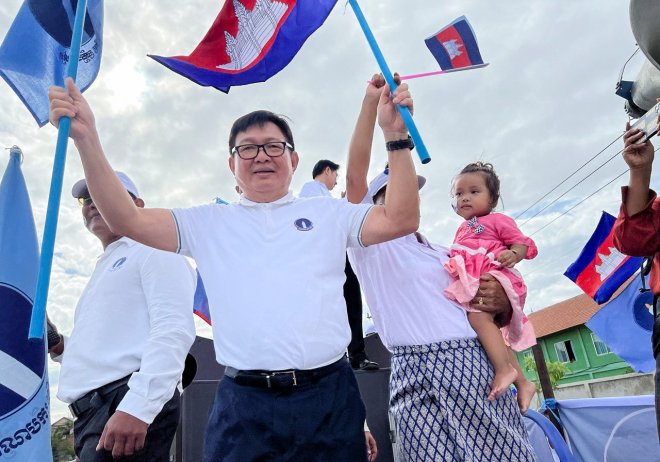
Cambodia’s National Election Committee said Monday that 18 parties have officially declared their intent to participate in the country’s July 23 general elections, when more than 9.7 million voters will decide who will represent them in the national assembly.
Monday was the deadline for applications, and the committee said that 11 of the 18 applications have been approved, while some of the other applications are still under review.
Hun Sen’s ruling Cambodian People’s Party is expected to dominate in the election, but the upstart main opposition Candlelight Party performed relatively well in last year’s commune elections and could make some noise in July.
The ruling party, however, controls all 125 seats in the assembly because Hun Sen had the Supreme Court dissolve the previous opposition party in the runup to the 2018 election.
Deadline registration
The Grassroot Democrat Party submitted its application on the last day, nominating 166 full and reserve candidates in 12 constituencies including the capital. Of these candidates, 36 are women and 20 are relatively young, the party’s president Yeng Virak told RFA’s Khmer Service.
Yeng Virak, who is himself vying for a seat representing Phnom Penh, said that the reason why the party is contesting few constituencies is because the party maintains a position of not wanting to split the ballot.
The party is still waiting for National Election Commission approval.
RFA could not reach commission spokesman Hang Puthea for comment as of May 8.
Fairness required
Sam Kuntheamy, the executive director of the Neutral & Impartial Committee for Free and Fair Elections in Cambodia, an elections watchdog, told RFA that some political parties failed to list candidates for the seventh term because they face budget constraints and a restrictive political environment.
However, he believes that the exercise of civil and political rights is key to ensuring that the election process is free, fair and just, so that stakeholders must compete fairly and in accordance with the law.
“For all stakeholders, especially political parties, we want them to organize the operation of their political parties appropriately and smoothly, because it is close to the election campaign period,” he said. “We in the civil society also want to observe.”
The National Election Committee announced that the official number of eligible voters in the upcoming elections is 9,710,655 and there will be 23,789 polling places nationwide.
Translated by Sok Ry Sum. Edited by Eugene Whong and Malcolm Foster.